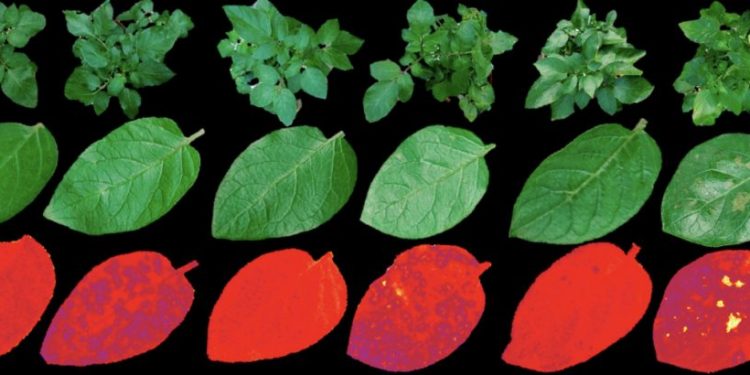Israeli researchers at the Hebrew University of Jerusalem have developed a new molecular sensor system that detects harmful diseases in crops, including potatoes and tomatoes.
Early detection of diseases such as late blight can help reduce global food insecurity. This disease is one of the main causes of potato and tomato crop losses, with an estimated $6.5 billion annual damage worldwide. In the early stages, this disease is difficult to identify because the leaves do not show external signs.
In an article published in The Plant Journal, the researchers showed the use of genetic engineering techniques to develop new potato varieties that produce distinctive proteins. These proteins act as a biological sensor that can be sent to the chloroplasts in plant cells where photosynthesis takes place.
Using sensitive cameras capable of capturing the signals sent by the sensor, the scientists were able to obtain spatial information about the entire plant. The resulting images helped to track the physiological state of the plant throughout the entire period of development of the potato disease.
The study also showed that the protein detects diseased areas of leaves even in the first invisible stages. Another discovery suggests that areas infected with late blight are characterized by higher photosynthetic activity compared to the rest of the leaf. This points to how the pathogen maintains and even improves leaf productivity in the early stages of the disease in order to “mask” its development in the plant, the researchers said.
The development of advanced biotechnological tools for the early detection of plant diseases could lead to future research breakthroughs in understanding the pathogenicity process and minimizing agricultural damage.







